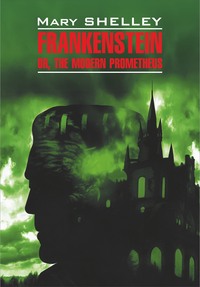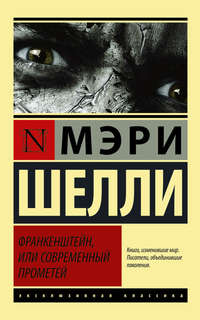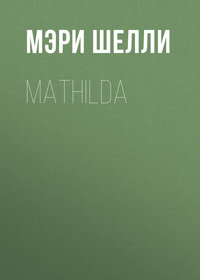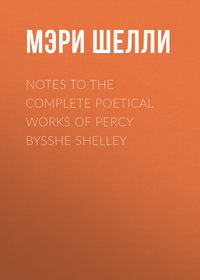 полная версия
полная версияHistory of a Six Weeks' Tour
The verge of a glacier, like that of Boisson, presents the most vivid image of desolation that it is possible to conceive. No one dares to approach it; for the enormous pinnacles of ice which perpetually fall, are perpetually reproduced. The pines of the forest, which bound it at one extremity, are overthrown and shattered to a wide extent at its base. There is something inexpressibly dreadful in the aspect of the few branchless trunks, which, nearest to the ice rifts, still stand in the uprooted soil. The meadows perish, overwhelmed with sand and stones. Within this last year, these glaciers have advanced three hundred feet into the valley. Saussure, the naturalist, says, that they have their periods of increase and decay: the people of the country hold an opinion entirely different; but as I judge, more probable. It is agreed by all, that the snow on the summit of Mont Blanc and the neighbouring mountains perpetually augments, and that ice, in the form of glaciers, subsists without melting in the valley of Chamouni during its transient and variable summer. If the snow which produces this glacier must augment, and the heat of the valley is no obstacle to the perpetual existence of such masses of ice as have already descended into it, the consequence is obvious; the glaciers must augment and will subsist, at least until they have overflowed this vale.
I will not pursue Buffon's sublime but gloomy theory – that this globe which we inhabit will at some future period be changed into a mass of frost by the encroachments of the polar ice, and of that produced on the most elevated points of the earth. Do you, who assert the supremacy of Ahriman, imagine him throned among these desolating snows, among these palaces of death and frost, so sculptured in this their terrible magnificence by the adamantine hand of necessity, and that he casts around him, as the first essays of his final usurpation, avalanches, torrents, rocks, and thunders, and above all these deadly glaciers, at once the proof and symbols of his reign; – add to this, the degradation of the human species – who in these regions are half deformed or idiotic, and most of whom are deprived of any thing that can excite interest or admiration. This is a part of the subject more mournful and less sublime; but such as neither the poet nor the philosopher should disdain to regard.
This morning we departed, on the promise of a fine day, to visit the glacier of Montanvert. In that part where it fills a slanting valley, it is called the Sea of Ice. This valley is 950 toises, or 7600 feet above the level of the sea. We had not proceeded far before the rain began to fall, but we persisted until we had accomplished more than half of our journey, when we returned, wet through.
Chamouni, July 25th.
We have returned from visiting the glacier of Montanvert, or as it is called, the Sea of Ice, a scene in truth of dizzying wonder. The path that winds to it along the side of a mountain, now clothed with pines, now intersected with snowy hollows, is wide and steep. The cabin of Montanvert is three leagues from Chamouni, half of which distance is performed on mules, not so sure footed, but that on the first day the one which I rode fell in what the guides call a mauvais pas, so that I narrowly escaped being precipitated down the mountain. We passed over a hollow covered with snow, down which vast stones are accustomed to roll. One had fallen the preceding day, a little time after we had returned: our guides desired us to pass quickly, for it is said that sometimes the least sound will accelerate their descent. We arrived at Montanvert, however, safe.
On all sides precipitous mountains, the abodes of unrelenting frost, surround this vale: their sides are banked up with ice and snow, broken, heaped high, and exhibiting terrific chasms. The summits are sharp and naked pinnacles, whose overhanging steepness will not even permit snow to rest upon them. Lines of dazzling ice occupy here and there their perpendicular rifts, and shine through the driving vapours with inexpressible brilliance: they pierce the clouds like things not belonging to this earth. The vale itself is filled with a mass of undulating ice, and has an ascent sufficiently gradual even to the remotest abysses of these horrible desarts. It is only half a league (about two miles) in breadth, and seems much less. It exhibits an appearance as if frost had suddenly bound up the waves and whirlpools of a mighty torrent. We walked some distance upon its surface. The waves are elevated about 12 or 15 feet from the surface of the mass, which is intersected by long gaps of unfathomable depth, the ice of whose sides is more beautifully azure than the sky. In these regions every thing changes, and is in motion. This vast mass of ice has one general progress, which ceases neither day nor night; it breaks and bursts for ever: some undulations sink while others rise; it is never the same. The echo of rocks, or of the ice and snow which fall from their overhanging precipices, or roll from their aerial summits, scarcely ceases for one moment. One would think that Mont Blanc, like the god of the Stoics, was a vast animal, and that the frozen blood for ever circulated through his stony veins.
We dined (M***, C***, and I) on the grass, in the open air, surrounded by this scene. The air is piercing and clear. We returned down the mountain, sometimes encompassed by the driving vapours, sometimes cheered by the sunbeams, and arrived at our inn by seven o'clock.
Montalegre, July 28th.
The next morning we returned through the rain to St. Martin. The scenery had lost something of its immensity, thick clouds hanging over the highest mountains; but visitings of sunset intervened between the showers, and the blue sky shone between the accumulated clouds of snowy whiteness which brought them; the dazzling mountains sometimes glittered through a chasm of the clouds above our heads, and all the charm of its grandeur remained. We repassed Pont Pellisier, a wooden bridge over the Arve, and the ravine of the Arve. We repassed the pine forests which overhang the defile, the chateau of St. Michel, a haunted ruin, built on the edge of a precipice, and shadowed over by the eternal forest. We repassed the vale of Servoz, a vale more beautiful, because more luxuriant, than that of Chamouni. Mont Blanc forms one of the sides of this vale also, and the other is inclosed by an irregular amphitheatre of enormous mountains, one of which is in ruins, and fell fifty years ago into the higher part of the valley: the smoke of its fall was seen in Piedmont, and people went from Turin to investigate whether a volcano had not burst forth among the Alps. It continued falling many days, spreading, with the shock and thunder of its ruin, consternation into the neighbouring vales. In the evening we arrived at St. Martin. The next day we wound through the valley, which I have described before, and arrived in the evening at our home.
We have bought some specimens of minerals and plants, and two or three crystal seals, at Mont Blanc, to preserve the remembrance of having approached it. There is a cabinet of Histoire Naturelle at Chamouni, just as at Keswick, Matlock, and Clifton; the proprietor of which is the very vilest specimen of that vile species of quack that, together with the whole army of aubergistes and guides, and indeed the entire mass of the population, subsist on the weakness and credulity of travellers as leaches subsist on the sick. The most interesting of my purchases is a large collection of all the seeds of rare alpine plants, with their names written upon the outside of the papers that contain them. These I mean to colonize in my garden in England, and to permit you to make what choice you please from them. They are companions which the Celandine – the classic Celandine, need not despise; they are as wild and more daring than he, and will tell him tales of things even as touching and sublime as the gaze of a vernal poet.
Did I tell you that there are troops of wolves among these mountains? In the winter they descend into the vallies, which the snow occupies six months of the year, and devour every thing that they can find out of doors. A wolf is more powerful than the fiercest and strongest dog. There are no bears in these regions. We heard, when we were at Lucerne, that they were occasionally found in the forests which surround that lake. Adieu.
S.LINES WRITTEN IN THE VALE OF CHAMOUNI
MONT BLANC.
LINES WRITTEN IN THE VALE OF CHAMOUNI
IThe everlasting universe of thingsFlows through the mind, and rolls its rapid waves,Now dark – now glittering – now reflecting gloom —Now lending splendour, where from secret springsThe source of human thought its tribute bringsOf waters, – with a sound but half its own,Such as a feeble brook will oft assumeIn the wild woods, among the mountains lone,Where waterfalls around it leap for ever,Where woods and winds contend, and a vast riverOver its rocks ceaselessly bursts and raves.IIThus thou, Ravine of Arve – dark, deep Ravine —Thou many-coloured, many-voiced vale,Over whose pines, and crags, and caverns sailFast cloud shadows and sunbeams: awful scene,Where Power in likeness of the Arve comes downFrom the ice gulphs that gird his secret throne,Bursting through these dark mountains like the flameOf lightning thro' the tempest; – thou dost lie,Thy giant brood of pines around thee clinging,Children of elder time, in whose devotionThe chainless winds still come and ever cameTo drink their odours, and their mighty swingingTo hear – an old and solemn harmony;Thine earthly rainbows stretched across the sweepOf the ethereal waterfall, whose veilRobes some unsculptured image; the strange sleepWhich when the voices of the desart failWraps all in its own deep eternity; —Thy caverns echoing to the Arve's commotion,A loud, lone sound no other sound can tame;Thou art pervaded with that ceaseless motion,Thou art the path of that unresting sound —Dizzy Ravine! and when I gaze on theeI seem as in a trance sublime and strangeTo muse on my own separate phantasy,My own, my human mind, which passivelyNow renders and receives fast influencings,Holding an unremitting interchangeWith the clear universe of things around;One legion of wild thoughts, whose wandering wingsNow float above thy darkness, and now restWhere that or thou art no unbidden guest,In the still cave of the witch Poesy,Seeking among the shadows that pass byGhosts of all things that are, some shade of thee,Some phantom, some faint image; till the breastFrom which they fled recalls them, thou art there!IIISome say that gleams of a remoter worldVisit the soul in sleep, – that death is slumber,And that its shapes the busy thoughts outnumberOf those who wake and live. – I look on high;Has some unknown omnipotence unfurledThe veil of life and death? or do I lieIn dream, and does the mightier world of sleepSpread far around and inaccessiblyIts circles? For the very spirit fails,Driven like a homeless cloud from steep to steepThat vanishes among the viewless gales!Far, far above, piercing the infinite sky,Mont Blanc appears, – still, snowy, and serene —Its subject mountains their unearthly formsPile around it, ice and rock; broad vales betweenOf frozen floods, unfathomable deeps,Blue as the overhanging heaven, that spreadAnd wind among the accumulated steeps;A desart peopled by the storms alone,Save when the eagle brings some hunter's bone,And the wolf tracts her there – how hideouslyIts shapes are heaped around! rude, bare, and high,Ghastly, and scarred, and riven. – Is this the sceneWhere the old Earthquake-dæmon taught her youngRuin? Were these their toys? or did a seaOf fire, envelope once this silent snow?None can reply – all seems eternal now.The wilderness has a mysterious tongueWhich teaches awful doubt, or faith so mild,So solemn, so serene, that man may beBut for such faith with nature reconciled;Thou hast a voice, great Mountain, to repealLarge codes of fraud and woe; not understoodBy all, but which the wise, and great, and goodInterpret, or make felt, or deeply feel.IVThe fields, the lakes, the forests, and the streams,Ocean, and all the living things that dwellWithin the dædal earth; lightning, and rain,Earthquake, and fiery flood, and hurricane,The torpor of the year when feeble dreamsVisit the hidden buds, or dreamless sleepHolds every future leaf and flower; – the boundWith which from that detested trance they leap;The works and ways of man, their death and birth,And that of him and all that his may be;All things that move and breathe with toil and soundAre born and die; revolve, subside and swell.Power dwells apart in its tranquillityRemote, serene, and inaccessible:And this, the naked countenance of earth,On which I gaze, even these primæval mountainsTeach the adverting mind. The glaciers creepLike snakes that watch their prey, from their far fountains,Slow rolling on; there, many a precipice,Frost and the Sun in scorn of mortal powerHave piled: dome, pyramid, and pinnacle,A city of death, distinct with many a towerAnd wall impregnable of beaming ice.Yet not a city, but a flood of ruinIs there, that from the boundaries of the skyRolls its perpetual stream; vast pines are strewingIts destined path, or in the mangled soilBranchless and shattered stand; the rocks, drawn downFrom yon remotest waste, have overthrownThe limits of the dead and living world,Never to be reclaimed. The dwelling-placeOf insects, beasts, and birds, becomes its spoil;Their food and their retreat for ever gone,So much of life and joy is lost. The raceOf man, flies far in dread; his work and dwellingVanish, like smoke before the tempest's stream,And their place is not known. Below, vast cavesShine in the rushing torrent's restless gleam,Which from those secret chasms in tumult wellingMeet in the vale, and one majestic River,The breath and blood of distant lands, for everRolls its loud waters to the ocean waves.Breathes its swift vapours to the circling air.VMont Blanc yet gleams on high: – the power is there,The still and solemn power of many sights,And many sounds, and much of life and death.In the calm darkness of the moonless nights,In the lone glare of day, the snows descendUpon that Mountain; none beholds them there,Nor when the flakes burn in the sinking sun,Or the star-beams dart through them: – Winds contendSilently there, and heap the snow with breathRapid and strong, but silently! Its homeThe voiceless lightning in these solitudesKeeps innocently, and like vapour broodsOver the snow. The secret strength of thingsWhich governs thought, and to the infinite domeOf heaven is as a law, inhabits thee!And what were thou, and earth, and stars, and sea,If to the human mind's imaginingsSilence and solitude were vacancy?June 23, 1816.Reynell, Printer, 45, Broad-street,
Golden-square.









